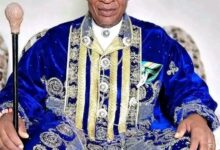
By Gloria Afajagbe
The President-elect Bola Tinubu has opposed the application by Atiku Abubakar of the Peoples Democratic Party (PDP) for a live broadcast of the proceedings of the election petition.
In response to the application, Tinubu and his vice, Kashim Shettima, through a team of lawyers led by Chief Wole Olanipekun said, the application is an abuse of the court.
Chief Olanipekun implored the Presidential Election Petition Court to dismiss the application, arguing that the relief demanded by the applicants is not such that the court could grant.
“With much respect to the petitioners, the motion is an abuse of the processes of this honourable court.
“It is not a rostrum or a soapbox. It is not also a stadium or theatre. It is not an arena for ‘public’ entertainment.”
He noted that, application was linked to the counter affidavit, a policy formulation of the court, which is outside the PEPC’s jurisdiction as constituted.
“The application also touches on the powers and jurisdiction invested in the President of the Court of Appeal by the Constitution, over which this honourable court as presently constituted cannot entertain.
“The application touches on the administrative functions, which are exclusively reserved for the President of the Court of Appeal.
“The application is aimed at dissipating the precious judicial time of this honourable court.
“They said application does not have any bearing with the petition filed by the petitioners before this honourable court.
“It is in the interest of justice for this honourable court to dismiss the said application filed by the petitioners,” Olanipekun said.
Olanipekun criticised the applicants’ reference to the fact that virtual proceedings were allowed during the COVID-19 pandemic saying that, Atiku and the PDP failed to highlight the fact that practice directions were made by the respective courts for the exercise.
“Another angle to this very curious application is the invitation it extends to the court to make an order that it cannot supervise.
“The position of the law remains, and we do submit that the court, like nature, does not make an order in vain, or an order which is incapable of enforcement.
“The word ‘public’ as applied under Section 36(3) of the Constitution has been defined in a plethora of judicial authorities to mean a place where members of the public have unhindered access, and the court itself, sitting behind open doors, not in the camera.
“Even in situations where a class action is presented, the particular people constituting the class being represented by the plaintiffs or petitioners are always defined in the originating process.
“Here, in this application, the public at whose behest this application has been presented is not defined, not known, not discernable.
“Beyond all these, it is our submission that the court of law must and should always remain what it is, what it should be and what it is expected to be: a serene, disciplined, hallowed, tranquil, honourable and decorous institution and place”, he stated.











